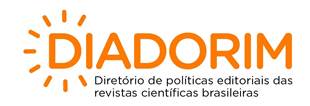Identification of food triggers associated with migraine characteristics
Views: 544Abstract
Introduction: Food triggers are frequently reported by individuals with migraine; however, their clinical implications are still poorly understood. Objective: To investigate the association between migraine characteristics and specific food triggers. Methods: This cross-sectional study included individuals with migraine who reported at least one food as a migraine trigger, seen in an academic outpatient clinic in Londrina-PR, Brazil. Demographic, anthropometric, and clinical information were collected. Data on migraine classification, medication overuse, prophylactic treatment, and presence of osmophobia were recorded. Participants also completed validated self-administered questionnaires on disability, migraine impact, allodynia, anxiety, and depression. An exploratory analysis was conducted using Chi-square or Fisher's Exact tests as appropriate. Results: A total of 524 individuals with migraine were evaluated, of whom 293 reported at least one food trigger. The majority of these participants were female (87.0%) with a median age of 33 years. The most frequently reported triggers were alcohol (44.0%), followed by chocolate (42.0%) and cheese (27.7%). Chocolate was associated with episodic migraine compared to chronic migraine (49.0% vs. 34.1%; p=0.010). Cheese was associated with females (30.2% vs. 10.5%; p=0.011), osmophobia (31.6% vs. 13.8%; p=0.005), and prodrome perception (30.9% vs. 17.8%; p=0.030). Excessive carbohydrates were associated with females (30.2% vs. 10.5%; p=0.011) and depression (41.5% vs. 25.7%; p=0.041). Monosodium glutamate was associated with the presence of osmophobia (9.2% vs. 1.5%; p=0.035) and abdominal obesity (13.4% vs. 5.1%; p=0.024). Citrus fruits were associated with migraine without aura (16.0% vs. 7.3%; p=0.022) and age ≥50 years (25.0% vs. 9.4%; p=0.002). Lastly, artificial sweeteners were associated with migraine without aura (p=0.029), and processed meats with osmophobia (p=0.038). There was no association of specific food triggers with migraine disability, impact, allodynia, anxiety, prophylactic medication, or medication overuse. Conclusion: There is an association between migraine characteristics and the type of food perceived by patients as a trigger for migraine attacks.
Downloads
Downloads
Published
How to Cite
Issue
Section
License
Copyright (c) 2024 Larissa Polverini Boeing, Giulia Eloah de Pádua Ribeiro, Regina Célia Poli Frederico, Carlos Eduardo Coral de Oliveira, Edna Maria Vissoci Reiche, Valéria Aparecida Bello, Adriano Torres Antonucci, Aline Vitali da Silva (Author)

This work is licensed under a Creative Commons Attribution 4.0 International License.













